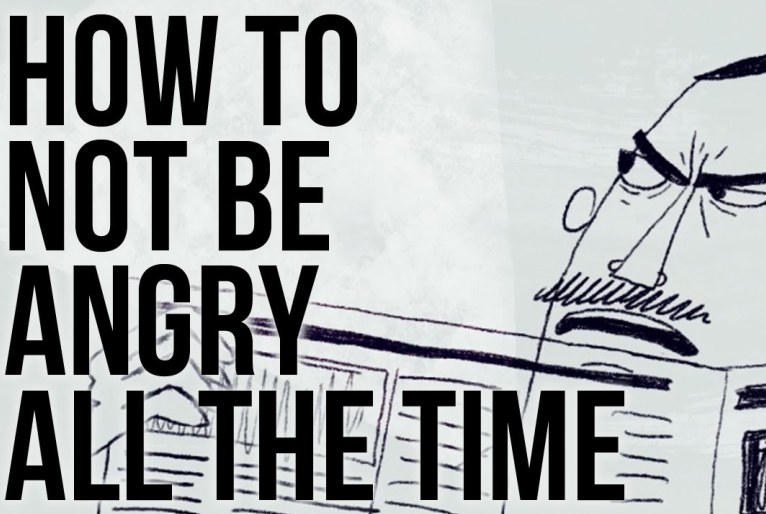Narcissist and jealousy
The Roots of Narcissistic Envy
In the Book of Genesis, Cain, the first narcissist, slays his brother Abel in a fit of envious rage. In the modern psychiatric “bible” (DSM-5), the diagnostic criteria for Narcissistic Personality Disorder include, “often envious of others or believes that others are envious of him or her.”
The connection between envy (wishing/demanding envy for the self and/or compulsively envying others) and narcissism was recognized long prior to confirmation in formal psychological research. This association between envy and narcissism casts light on the essential importance in narcissism of the management of shame.
Shame and envy are familiar emotions. When shamed, we feel a deflating awareness of our essential inadequacy, failure, or badness. There is a global sense of not living up to implicit moral standards. The person shamed wants to hide or avoid scrutiny, or to blame others for the deficiency.
When envious, attention turns to an external object or focus. Perhaps another person’s wealth, success, accomplishments, or happiness piques our envy. We feel an angry vexation, a resentful longing, at comparisons in which we come up short. In the primeval case of Cain, his envy triggered murderous rage when he perceived God’s response to Abel’s sacrifice more favorable than to his own.
Any parent who has brought home a newborn to an older child in the family experiences first-hand the nature of childhood envy. Sibling rivalries related to envy are entirely normal, rarely escalating to biblical level. Childhood envy often attaches to simple perceptions of unfairness, perhaps in terms of parental attention or treatment. By adulthood, envious states, while unpleasant, are manageable.
What makes the narcissist different?
The Role of Envy in Narcissistic Personalities
Narcissism develops within a personality structure organized at avoiding contact with shame. In apparent defiance of shame, there is a heightened focus on maintenance of an inflated sense of self-worth. While protective, narcissism comes at a psychological cost. Not only does preoccupation with self-enhancement require effort and energy, the desperate maintenance of a positive self-concept forfeits much of the ability to pay realistic attention to the needs, actions or feelings of others.
While protective, narcissism comes at a psychological cost. Not only does preoccupation with self-enhancement require effort and energy, the desperate maintenance of a positive self-concept forfeits much of the ability to pay realistic attention to the needs, actions or feelings of others.
In default grandiose states, the narcissistic mind may drift in a network of reassuring fantasies in which he or she is the center of attention and admiration. Envy is more likely to hijack attention for such a person than for someone genuinely comfortable in his or her own skin. To see someone exhibiting a trait, possession, or level of recognition that eludes you, or to encounter someone seemingly immune to some deflating quality you try mentally to keep at arm’s length, is jarring and unsettling.
For narcissists, people can broadly be divided into two groups: targets of their own envy and sources of real or imagined inflating envy from others. While narcissists attract and recruit sources of envious self-attention and admiration, this supply of ego gratification is rarely sufficient. Over the horizon are people with qualities worthy of the narcissist’s envy. There is a buoying excitement and sense of inflation when around people of envied status. Often, the narcissist will try to cultivate friendships or acquaintanceships with people that they envy. For example, a narcissistic individual insecure about lack of financial success might strive to be surrounded with people wealthier than him or herself. The unconscious goal is to incorporate, possess, control, or identify with their envied status or qualities.
Over the horizon are people with qualities worthy of the narcissist’s envy. There is a buoying excitement and sense of inflation when around people of envied status. Often, the narcissist will try to cultivate friendships or acquaintanceships with people that they envy. For example, a narcissistic individual insecure about lack of financial success might strive to be surrounded with people wealthier than him or herself. The unconscious goal is to incorporate, possess, control, or identify with their envied status or qualities.
But in addition to self-enhancing identification comes a painful sense of frustration. Why does he or she have all this? Why not me? This mobilizes the hostile, bitter component of the envious emotion, in which the object envied needs to be diminished in order to lessen the distance between self and other. For the narcissist, this gap may elicit what has been called “narcissistic injury,” a poignant reminder of shameful inadequacies that he or she tries desperately to deny.
Flavors of Narcissistic Envy in Psychotherapy
Inexperienced psychotherapists in training are often uneasy dealing with narcissistic patients. Uncomfortable with power dynamics, they tend to avoid exploring the fraught, inevitable transactions that may require tolerating patient envy. Yet it is my experience that it is in who, what and how they envy, such a patient often communicates more deeply and truthfully than is possible directly. They may otherwise possess only limited access to an inner world rigidly defended.
For example, an "idealizing therapist envy" might be expressed as a narcissistic patient, examining credentials on the office wall, comments, “Well, we certainly seem to show a bright career future, Doctor.” Here the patient might be expressing insidious fears of failure, instilled in childhood, generally hidden under a compensating veneer of adult grandiosity. This may enable the therapist to ask, “Do you sometimes worry about your future?”
On the other hand, a statement at the close of a session, such as, “Now you will go to your lovely home and family and forget about me, while I return to my lonely apartment,” reveals the more hostile element of envy.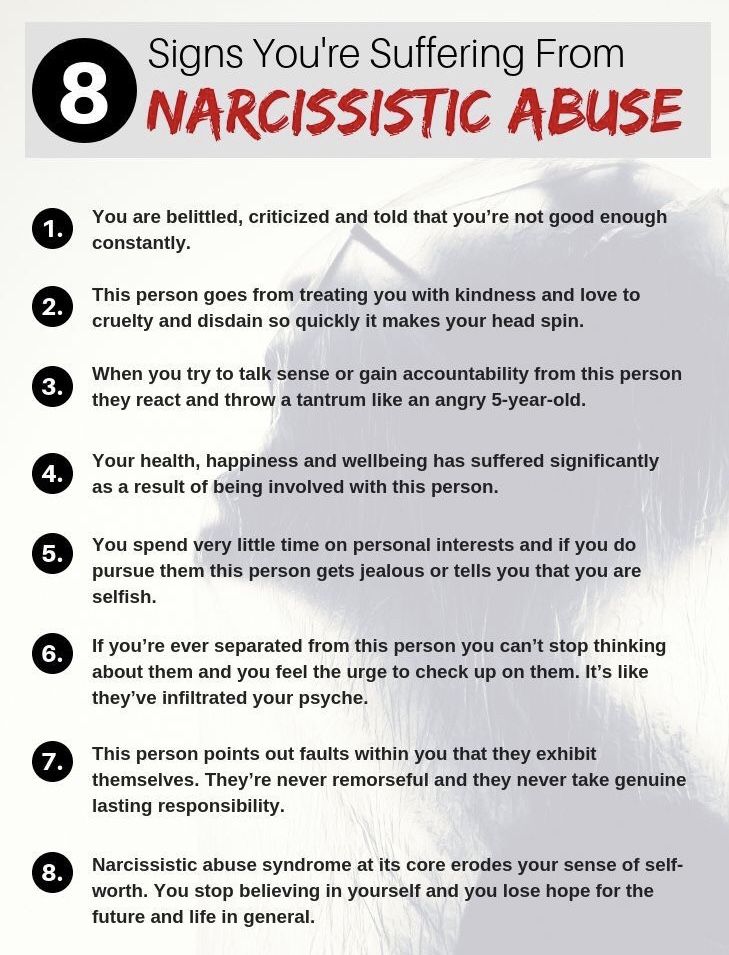 The object of projected disapproval here is that of an indifferent caretaker, perhaps a sign of childhood parental neglect not previously elaborated. This might lead to a line of inquiry such as, “You wonder whether it is safe to open up with me.” In both of these instances, important topics emerge in the course of envious therapist characterizations.
The object of projected disapproval here is that of an indifferent caretaker, perhaps a sign of childhood parental neglect not previously elaborated. This might lead to a line of inquiry such as, “You wonder whether it is safe to open up with me.” In both of these instances, important topics emerge in the course of envious therapist characterizations.
Envy brings focus on the human ability to compare ourselves, in fantasy, with others simultaneously idealized and devalued. While animals perceive and react to relative status, we are the only beings capable of envy at the success of others. For those preoccupied with status and self-image, envy becomes obsessive, causing an inability to acknowledge the accomplishments of children, intimate partners, and family members. If you are involved with a narcissist, you can assume that you are the object of envy, even though it may not be expressed directly. Listen carefully.
What Makes Some Narcissists Mean, Competitive, and Jealous
Source: Fizkes/Shutterstock
Severe narcissism is one of the most complex and confusing psychological phenomena, and its complexity explains why so much is written about it, and why there remains a need to continue educating the public about it. The focus of this post will be to address one facet of the disorder that remains so mysterious. Specifically, people who are in close proximity to severe narcissists often can't understand why the narcissist in their life can be so mean, get so jealous of their success or happiness, and be so competitive with them, even when we're talking about two romantic partners.
The focus of this post will be to address one facet of the disorder that remains so mysterious. Specifically, people who are in close proximity to severe narcissists often can't understand why the narcissist in their life can be so mean, get so jealous of their success or happiness, and be so competitive with them, even when we're talking about two romantic partners.
One word that will help you understand the narcissist
To begin, the most helpful word in framing an understanding of the narcissist is "counterintuitive." The most crucial point is that how the narcissist presents on the surface is entirely different from how the narcissist feels underneath. There are two "selfs" at work in the mind of the narcissist: their real self, and the fraudulent, fantasy self they try to sell to the public.
Severe narcissists have a predatory, score-keeping approach to the social world around them. The narcissist's daily life is spent fighting off potential threats to their ego and proving themselves as superior to everyone around them, and they have little peace of mind as they move through life. To understand why the narcissist can be so mean in interpersonal relationships, you must understand the unique motivations of the narcissist's intra-psychic world or, in lay terms, what goes on inside the mind of a narcissist.
To understand why the narcissist can be so mean in interpersonal relationships, you must understand the unique motivations of the narcissist's intra-psychic world or, in lay terms, what goes on inside the mind of a narcissist.
Most, if not all, severe narcissists were likely emotionally injured at a crucial time in their development. Specifically, they were injured when they were young children, a time when a child is highly impressionable, and when that child hasn't yet figured out how to shore up psychological guards (defenses) to ward off things that make them feel bad.
When the young boy or girl was emotionally injured, it probably took the following form: An authority figure or even bullying kids at school humiliated them, subjugated them, knowingly neglected them, or otherwise exploited them. To become severely narcissistic later in life, the emotional injury in childhood had to be severe enough that the individual arrived at the following (unconscious) conclusion: No one will ever hurt me like that again; I will never let my guard down.
Later in life, this way of relating to people and the world has been practiced over and over for so many years that the personality becomes largely locked into place, and it is extremely challenging for the narcissist to let themselves be exposed emotionally for very long at all. If someone or something threatens the narcissist's ego, the narcissist abruptly shifts into predator mode.
Why narcissists can be so mean
In a moment, I will explain what happens when the narcissist shifts into predator mode. First, however, it is important to understand why the narcissist feels the need to fight so doggedly, to begin with.
In the mind of the narcissist, the social world includes two strict categories: winners and losers. There is no possible outcome they can conceive of in which everyone gets their needs met. There isn't enough attention and praise for everyone to go around, so according to narcissistic logic, only a few lucky ones will be selected. Because of the way the narcissist was probably humiliated, unnoticed, or subjugated in the past when it mattered most, the narcissist is also motivated by making sure that they are never put down or overlooked again.
When the narcissist feels most threatened, it is because someone has said or done something that makes the narcissist feel small, unnoticed, weak, or defective, and the narcissist cannot allow anyone or anything to make him feel like that under any circumstances. The narcissist's thinking goes like this: Any threat to her or his temperamental ego must be identified and erased immediately. If the threat continues, it must be annihilated by any means necessary.
If you put down the narcissist or humiliate them publicly, you will unleash decades-old rage, and the narcissist will not stop until they feel you have been verbally or emotionally decimated. (Keep in mind that what the narcissist perceives as a slight is rarely objective.) People who haven't been in close proximity to a severe narcissist would never believe the animalistic, ugly wrath that spews from the narcissist when they are activated. Many boys and girls, or men and women, who have suffered at the hands of an extreme narcissist talk about how seeing such hate-filled "colors" in another human being is traumatic in itself. (These same individuals also find it hard to ever emotionally trust someone again who shows such unbridled, predatory rage.)
(These same individuals also find it hard to ever emotionally trust someone again who shows such unbridled, predatory rage.)
If you are in close proximity to a severe narcissist, understand that the meanness and viciousness the narcissist displays when threatened or held accountable is not personal. Narcissists can use words as bullets, zeroing in on anything they can to unsettle and upset you. Being on the receiving end of this behavior is horrifying and confusing. The recipients often turn to self-help books or blog posts (like this one) to make sense of the experience, because it is so traumatic and disturbing. Recipients often become sort of "armchair therapists," learning about this personality disorder and trying to become an expert on this type of personality to maintain their sanity.
If you are in close proximity to a narcissist, I will highlight what is important for you to understand to move forward. At root, severe narcissists are highly abnormal men and women who have a form of mental illness (a personality disorder). The root of the disorder means that the narcissist, by definition, violates basic social rules and social conventions. When triggered, especially, they don't show empathy: They are entitled; they create their own reality from moment to moment; and they don't really care about others' feelings. The rules or social conventions that most elementary school children have already mastered are absent in the adult narcissist. I use the following expression with clients dealing with individuals like this: "They don't get it, but they also don't want to get it."
The root of the disorder means that the narcissist, by definition, violates basic social rules and social conventions. When triggered, especially, they don't show empathy: They are entitled; they create their own reality from moment to moment; and they don't really care about others' feelings. The rules or social conventions that most elementary school children have already mastered are absent in the adult narcissist. I use the following expression with clients dealing with individuals like this: "They don't get it, but they also don't want to get it."
To understand why narcissists can be so mean, you must understand that there are no limits or boundaries when they get triggered (e.g., something makes them look bad, countering the false, impermeable image they desperately try to sell to themselves and to the world overall). Nothing is off-limits with the narcissist when they are upset. No one else in the room has feelings when the narcissist is overwhelmed by his or her own negative feelings. It's a true onslaught, and to see someone who supposedly cares about and loves you completely deny your — and everyone else's — reality and rip you to shreds, at times, is simply par for the course. If narcissists were foods approved by the Food and Drug Administration, the sticker would read: "Can be extremely malicious and destructive when provoked."
It's a true onslaught, and to see someone who supposedly cares about and loves you completely deny your — and everyone else's — reality and rip you to shreds, at times, is simply par for the course. If narcissists were foods approved by the Food and Drug Administration, the sticker would read: "Can be extremely malicious and destructive when provoked."
Perhaps some men and women can handle being occasionally treated in an abusive way, but I'm not sure that should be the goal. The goal isn't to steel yourself against a loved one to the point where nothing they say or do hurts you. Yes, you could play that game, but what's the point of investing in a relationship that has no real emotional intimacy? Moreover, what's the point in having a relationship with someone who violates basic social rules that most third graders already subscribe to?
Why narcissists are so competitive and can't let you shine
Because the narcissist's emotional scar involved them being unnoticed, humiliated, or subjugated at a crucial point in their psychological development, the overall topic of succeeding, shining, or getting noticed is a so-called hot-button issue. It is a loaded issue, fraught with primitive and unconscious memories, thoughts, and feelings.
It is a loaded issue, fraught with primitive and unconscious memories, thoughts, and feelings.
So many people in close proximity to a severe narcissist feel confused about why the narcissist has such an intense and often negative reaction when the other person feels really good, succeeds, or shines. Here is where things get tricky and highly personality-disordered.
Oddly enough, the severe narcissist takes your success as a reflection on them, but not necessarily in the way that you might be imagining. The mind of the narcissist is a binary, all-or-nothing world. If you succeed, their twisted logic tells them that your success means they failed. Someone else succeeding or shining (especially someone close to them, whom they see all the time) is actually upsetting (even unconsciously painful) because they see your success as a missed opportunity for themselves to get a little love or attention. While most people rightly believe that there is enough of all the good stuff to go around — love, attention, respect — severe narcissists are convinced that only a select few will get recognized. Sadly, no amount of convincing will convince them otherwise. It is critical to understand that the narcissist isn't competitive with you because they hate you or want to hurt you emotionally. They do what they do because they are feeling emotionally deprived themselves.
Sadly, no amount of convincing will convince them otherwise. It is critical to understand that the narcissist isn't competitive with you because they hate you or want to hurt you emotionally. They do what they do because they are feeling emotionally deprived themselves.
Normal people are entirely confused about how the narcissist — or anyone, for that matter — can go through so much of their life without ever having learned and accepted some of the most fundamental social laws. Most third graders already understand and follow these basic social conventions, so it is almost hard to understand on a logical level how someone who looks like an adult and is not cognitively disabled could act so much like a child. This issue broaches the subject of another factor that underlies the disorder: oppositionality.
Oppositionality is an often overlooked part of the disorder
Anecdotally, having worked with many children and teenagers who have oppositional defiant disorder, I have noticed an interesting overlap between that disorder and adult narcissistic personality disorder. The overlap is worth examining because it will help you to see how so much of the narcissist's mental approach and behavior is inherently oppositional under the surface.
The overlap is worth examining because it will help you to see how so much of the narcissist's mental approach and behavior is inherently oppositional under the surface.
Oppositional defiant disorder (known as ODD in clinical circles) is a mental disorder seen in school-aged children. The diagnosis includes the following criteria: often loses temper; often argues with adults; often actively defies or refuses to comply with adults’ requests or rules; often blames others for his or her mistakes or misbehavior; is often angry and resentful; and is often spiteful or vindictive. If you are in close proximity to a narcissist, you see the shared characteristics.
Children who have oppositional, defiant personalities and adults who have narcissistic personalities are the way they are for a reason. There is no strict biological basis for these complex, difficult personalities. Perhaps biology plays a role, but my many years of experience with clients have shown that something in the individual's emotional relationships early in life was usually a major contributor (unhealthy parenting approaches, trauma, etc. ). The point is that the narcissist's personality got constructed in a highly defensive way. For a personality to become so resistant, difficult, and all-around abnormal, something abnormal in the individual's past had to take place over a significant length of time or during an especially critical period in that individual's development (perhaps within the first several years of life, or what many call the "critical period").
). The point is that the narcissist's personality got constructed in a highly defensive way. For a personality to become so resistant, difficult, and all-around abnormal, something abnormal in the individual's past had to take place over a significant length of time or during an especially critical period in that individual's development (perhaps within the first several years of life, or what many call the "critical period").
For those in close proximity to the severe narcissist, they must understand what, again, is counterintuitive. In other words, how the severe narcissist acts with you often — especially when their ego or sense of power has been threatened — has nothing to do with you.
What kind of relationship can you have with a severe narcissist?
Given the highly abnormal relationship dynamic a narcissist requires, what kind of relationship can you have with a severe narcissist? The answer isn't simple. If you don't emotionally trigger the narcissist, you can have a semblance of a relationship. There won't be real intimacy — because intimacy is about equals, and narcissists can't do that, no matter what — but you can coexist. But if you are someone who feels good about yourself, gets noticed and praised by others, and holds yourself or anyone else accountable for major social or relationship violations, there can usually be no relationship. To make it work with a narcissist, you must alter your entire line of thinking with them in this way: They have the power, they are in control, and they matter more. Without adopting this skewed, counterintuitive framework, the narcissist, from time to time, will always end up making you pay a price for the self-esteem you have.
There won't be real intimacy — because intimacy is about equals, and narcissists can't do that, no matter what — but you can coexist. But if you are someone who feels good about yourself, gets noticed and praised by others, and holds yourself or anyone else accountable for major social or relationship violations, there can usually be no relationship. To make it work with a narcissist, you must alter your entire line of thinking with them in this way: They have the power, they are in control, and they matter more. Without adopting this skewed, counterintuitive framework, the narcissist, from time to time, will always end up making you pay a price for the self-esteem you have.
To read about specific visualization techniques you can use to keep the peace with a narcissist, read my article on the subject here.
Narcissistic Jealousy, Therapeutic Reflections - Gestalt Club
Narcissistic Jealousy - Doesn't it sound absurd? For the first glance, it may appear that the narcissist is incapable of experiencing jealousy, as well as envy. Because - haha - "who can be better than me?" In order to be jealous, the narcissist is too sure of its superiority. Sometimes so much that his partners will fall into a rage - it will seem to them that the narcissist is just spit. It is possible that this can also be the case - he just indifferent. Or you will become indifferent to him if you are interested others. The narcissist thinks he's too cool to be trade him for someone else, and if that happens - it means that something is wrong with his partner, and in no case with him, and all the love and admiration for themselves in one moment quickly disappear - so there’s really nothing to worry about then there is no point in being jealous. However, I have a suspicion that narcissists still have a certain amount of jealousy or may be, it is simply expressed in a slightly different way than, for example, in paranoid or anxious, uniform.
Unconsciously driven by the fear of rejection, the narcissist firstly, it may initially be avoided by those who could reject or choose someone else instead. But here too everything is not easy - he needs someone no less "cool" than him, and accordingly, having every chance of being interesting not to him alone, because in this place the narcissist can simply get into a dead end and still encounter jealousy, the forms of which I will speak about later. Another option - being sometimes quite self-confident and unprincipled, narcissist, interested in someone and noticing mutual interest, will not look at anything and nothing will stop him - neither the existence of their own relations, nor the fact that the subject of his passion has a partner. He can watch, explore and wait for a long time the right moment .. To finally defeat his unsurpassed)) On the one hand, he knows that he is too good, to be able to pass. But at the same time, the one to whom he sympathizes - also good (otherwise the narcissist would not be interested) and, therefore, somewhere in the depths of the soul, maybe the narcissist is afraid to be rejected by him. Torn between these contradictions narcissistic jealousy can look very specific.
But here too everything is not easy - he needs someone no less "cool" than him, and accordingly, having every chance of being interesting not to him alone, because in this place the narcissist can simply get into a dead end and still encounter jealousy, the forms of which I will speak about later. Another option - being sometimes quite self-confident and unprincipled, narcissist, interested in someone and noticing mutual interest, will not look at anything and nothing will stop him - neither the existence of their own relations, nor the fact that the subject of his passion has a partner. He can watch, explore and wait for a long time the right moment .. To finally defeat his unsurpassed)) On the one hand, he knows that he is too good, to be able to pass. But at the same time, the one to whom he sympathizes - also good (otherwise the narcissist would not be interested) and, therefore, somewhere in the depths of the soul, maybe the narcissist is afraid to be rejected by him. Torn between these contradictions narcissistic jealousy can look very specific.
The narcissist needs attention and recognition but will not fight. for them, if they are not there initially. Or does he think that they not enough. More precisely, no .. It will, but how? Indirectly, directly to say it's too scary. He can provoke jealousy himself, sometimes consciously, sometimes not, if he doubts your feelings for him or lacks attention. But the narcissist himself there is no point in provoking jealousy - he will either not fall for it, or hit on you. Even if he falls in love with you, until he sure enough of the reciprocity of his feelings, or that at least there is a chance he can pretend that you don't exist. BUT may not really notice - in order to notice someone, a daffodil you need to notice it first. In an existing relationship, he will not be paranoid, but if he realizes that he was chosen instead another, it will devalue everyone. Sometimes - myself - "I am insignificant and not worthy". And sometimes, instead of tormenting yourself with thoughts about that something is wrong with him, he will devalue this other person and the one whom he chose instead of him, and will raise himself to an even higher a high pedestal (in fact, this is a struggle with an unconscious feeling own insignificance). He looks at it with contempt. arrogance: "I'm so disappointed. I thought you were better. You don't you deserve my love. I'm too good for you. It's you so primitive and banal that he could not see and appreciate my the uniqueness and depth of my feelings, and to understand how lucky you are that I got interested in you. What stupid taste you have. Who are you chose? Who did you change me for? You don't deserve me. It's fine, that our paths diverged. "He, of course, may not say this out loud will say, but only for the last time will look at you "like shit" and on this cheerful, contemptuously self-confident note, the narcissist may never look your way again. Whereas on in fact, by the way, it is not a fact that the real grounds for jealousy they really were. But it's too risky to explain directly - you can "sleep" in your true feelings. If the border guard oscillates unsteadily between love and hate despite having he has narcissistic traits, yet the narcissist is more permanent in this.
He looks at it with contempt. arrogance: "I'm so disappointed. I thought you were better. You don't you deserve my love. I'm too good for you. It's you so primitive and banal that he could not see and appreciate my the uniqueness and depth of my feelings, and to understand how lucky you are that I got interested in you. What stupid taste you have. Who are you chose? Who did you change me for? You don't deserve me. It's fine, that our paths diverged. "He, of course, may not say this out loud will say, but only for the last time will look at you "like shit" and on this cheerful, contemptuously self-confident note, the narcissist may never look your way again. Whereas on in fact, by the way, it is not a fact that the real grounds for jealousy they really were. But it's too risky to explain directly - you can "sleep" in your true feelings. If the border guard oscillates unsteadily between love and hate despite having he has narcissistic traits, yet the narcissist is more permanent in this. He will admire you no less than himself (after all, he cannot next to him to be someone worse than him), but in case of disappointment - will see in you a projection of his own insignificance rejected by him - walks away and doesn't look back. Moreover, not to disappoint the narcissist is not a task. from simple ones, even if you do not touch on the topic of jealousy - putting forward high enough demands on himself, he will be just as much demand from others. Although, in general, I think the stage of disappointment inevitable in any relationship, and in conscious love (which, I but, I suppose, can become available highly functional narcissists) have the opportunity to meet imperfection and realize the imperfection of the other, accept it and develop relationships farther, then for the less "advanced" narcissist, disappointment is more often just fatal.
He will admire you no less than himself (after all, he cannot next to him to be someone worse than him), but in case of disappointment - will see in you a projection of his own insignificance rejected by him - walks away and doesn't look back. Moreover, not to disappoint the narcissist is not a task. from simple ones, even if you do not touch on the topic of jealousy - putting forward high enough demands on himself, he will be just as much demand from others. Although, in general, I think the stage of disappointment inevitable in any relationship, and in conscious love (which, I but, I suppose, can become available highly functional narcissists) have the opportunity to meet imperfection and realize the imperfection of the other, accept it and develop relationships farther, then for the less "advanced" narcissist, disappointment is more often just fatal.
Narcissists will not follow, interrogate or make a scene jealousy is too low for them. Rather, they will immediately fall down, although they can also change in the end: out of revenge and for self-affirmation.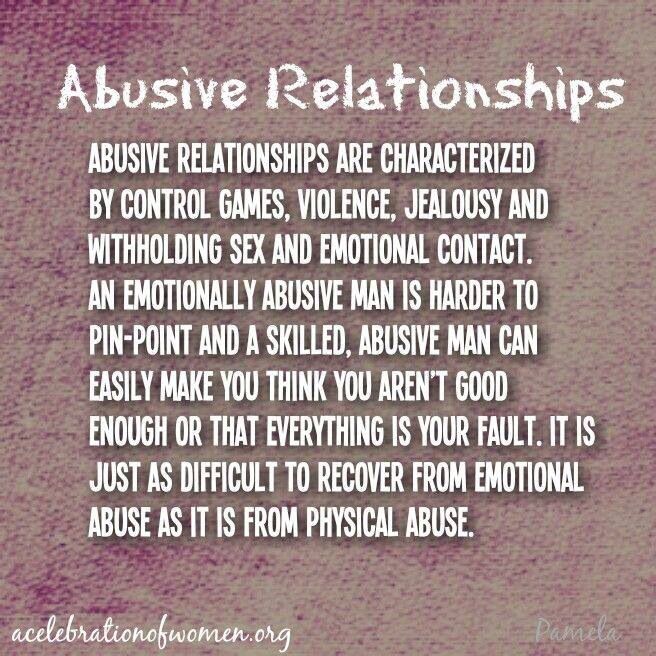 And even if you have never cheated on a narcissist, but let's say he was not enough attention from you, he can spin with a calm soul romance on the side without even hiding it, and then in this he will blame you.
And even if you have never cheated on a narcissist, but let's say he was not enough attention from you, he can spin with a calm soul romance on the side without even hiding it, and then in this he will blame you.
So I suspect that daffodils are real much more jealous than it seems. They can be very jealous. It is simply difficult for them to admit their own vulnerability, vulnerability in this place even to ourselves. They go to war like a relationship armor of impenetrable self-confidence and therefore kill themselves and others in this war and often end up alone. This war is conducted, first of all, with its own Ego. I think the main the victory or success of the narcissist could be considered the rejection of this equipment on the way to a real meeting with yourself and others. Realize that you can go forward not only to hit in the face, but and to hug. What if possible or already happened rejection is not about the fact that you are insignificant or too good, but just . . about the fact that it sometimes happens?
. about the fact that it sometimes happens?
In general, it is difficult for narcissists to build relationships. Especially if they really achieved a lot. Try to find a decent one. Try find time for this when you are constantly busy with "successful success." And then try to take a chance and get naked in front of another. Easier to build career and don't sweat it.
1.6 Narcissism and jealousy. THE SCIENCE OF LOVE
1.6 Narcissism and jealousy
Jealousy is an extreme form of selfish desire for possession, when one of the partners expects that the other will give his love only to him and no one else, not deviating one iota from the established norms of behavior. Jealousy includes a whole range of feelings, from those experienced by a deceived lover to the experiences of a husband who suspects that other men pay too close attention to his beloved. There are many forms of behavior that can be classified as jealousy, ranging from quite normal to pathological.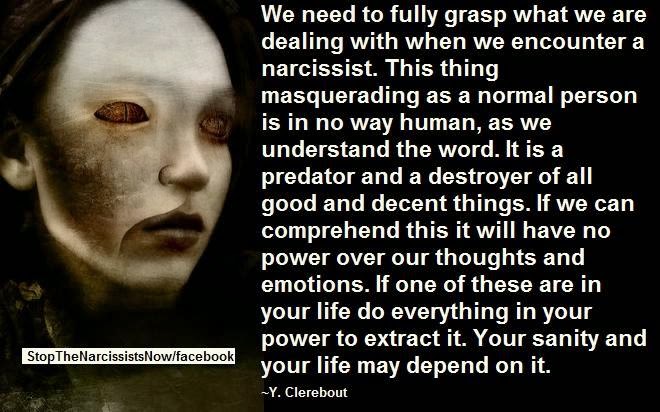 However, the source of it is always the fear that the object of love, real or supposed, may prefer someone else. The reasons for jealousy are very different and sometimes they exist only in the imagination of a jealous person who misinterprets the actions of the object of his passion or exaggerates their significance.
However, the source of it is always the fear that the object of love, real or supposed, may prefer someone else. The reasons for jealousy are very different and sometimes they exist only in the imagination of a jealous person who misinterprets the actions of the object of his passion or exaggerates their significance.
A jealous man seeks exclusive rights, imagining his beloved as a being deprived of any freedom whatsoever and having no right to privacy. In the desire to save his chosen one, he seeks to turn her into a prisoner of a psychological dungeon created on the basis of certain rules, powers and prohibitions, and believes that this will help him establish spiritual tyranny. The emotional balance of a jealous person is disturbed. By resorting to such methods, the jealous, in essence, demonstrates the lack of love in his own soul, since he does not love the one with whom he is allegedly in love. In reality, he needs a “psychological servant” on which he can rely and thus, by controlling the behavior, feelings and actions of another person, experience an illusory sense of confidence. Emptiness reigns in the soul of a jealous person, he is not at all confident in himself and tries to fill his inner world at the expense of the emotions of another person. If we consider his behavior from the point of view of love, then he is a perverted person, because instead of loving a loved one, people or the whole world, he focuses his feelings on himself. Oddly enough, however, a jealous person cannot be considered a perfect narcissist, convinced that his partner, people and the whole wide world exist solely to serve him. This behavior or character type reflects a deeper problem associated with narcissism, namely, infantilism, which develops as a result of fixation at an early stage in the development of the child. This fixation occurs when the child realizes that his body represents the only reality, since his ego does not exist outside of it. It is part of the surrounding world, but cannot perform actions in it. The world was created only to provide for its needs. Narcissism also has a later phase, which occurs when the child develops the ability to love, or rather, when he loses this ability.
Emptiness reigns in the soul of a jealous person, he is not at all confident in himself and tries to fill his inner world at the expense of the emotions of another person. If we consider his behavior from the point of view of love, then he is a perverted person, because instead of loving a loved one, people or the whole world, he focuses his feelings on himself. Oddly enough, however, a jealous person cannot be considered a perfect narcissist, convinced that his partner, people and the whole wide world exist solely to serve him. This behavior or character type reflects a deeper problem associated with narcissism, namely, infantilism, which develops as a result of fixation at an early stage in the development of the child. This fixation occurs when the child realizes that his body represents the only reality, since his ego does not exist outside of it. It is part of the surrounding world, but cannot perform actions in it. The world was created only to provide for its needs. Narcissism also has a later phase, which occurs when the child develops the ability to love, or rather, when he loses this ability. For a person suffering from a narcissistic complex, there is only one - the only reality - his own thoughts and needs. He does not perceive the world as something objectively existing, but only as a model created in accordance with the processes taking place inside him.
For a person suffering from a narcissistic complex, there is only one - the only reality - his own thoughts and needs. He does not perceive the world as something objectively existing, but only as a model created in accordance with the processes taking place inside him.
The narcissist is incapable of loving anyone, not even himself, because, as Fromm points out, true self-love is the opposite of selfishness. Selfishness is a product of the insatiable love that the individual feels for himself and which is explained by the lack of genuine love for his own personality. Selfishness is a failed attempt to compensate for the lack of self-love.
The partner of the jealous narcissist is the ideal servant who is in bondage not only physically but also sexually and emotionally, his imagination is also paralyzed. It is almost impossible to create a true married couple under such circumstances, since the partners are subconsciously tuned to a perverted relationship. It is no coincidence that they say that jealousy means the death of love, since neither the inquisitor nor the victim experience this feeling. At first, the victim may love his partner, but his exorbitant demands invariably take their toll and, in the end, her strength dries up and tender feelings come to an end.
At first, the victim may love his partner, but his exorbitant demands invariably take their toll and, in the end, her strength dries up and tender feelings come to an end.
Jealousy has another phenomenon that deserves attention - its destructive effect. It will never occur to a jealous man to come up with something new to improve the situation, as a non-jealous lover would do, because in his heart there is only place for revenge and hatred, and thoughts of murder or suicide swarm in his head. A person who truly loves such feelings are alien. Where there is love, only the desire to protect a loved one from anxiety and suffering acts. It may be objected that a suicide, for example, is driven by a desire to get out of the way and stop being a hindrance, but it cannot be assumed that his actions are devoid of selfishness. Suicide is not a gesture of self-denial, on the contrary, its goal is to create as much trouble as possible for a loved one, to take revenge beyond the edge of the grave. This is the true motive for committing suicide out of love.
This is the true motive for committing suicide out of love.
From the point of view of a person contemplating suicide, such an act has many advantages:
1. The partner is doomed to bear the burden of his own guilt for suicide. This is a life sentence and nothing can cancel it.
2. The suicide acquits himself of all charges by assuming the pose of an innocent victim, something like a sacrificial lamb.
3. He manages to avoid the complete collapse of self-esteem caused by betrayal - whether real or imagined - which gave rise to an outbreak of jealousy. Suicide for no particular reason would be an indelible stigma, but when done out of love, it always has an intriguing connotation.
4. The suicidal person retains his own dignity, refuses to give free rein to aggressive feelings, focusing them on himself.
Thus, the opponent is eliminated, the traitor is punished, the problem is shifted, and the responsibility for the deed is shifted onto the shoulders of the partner.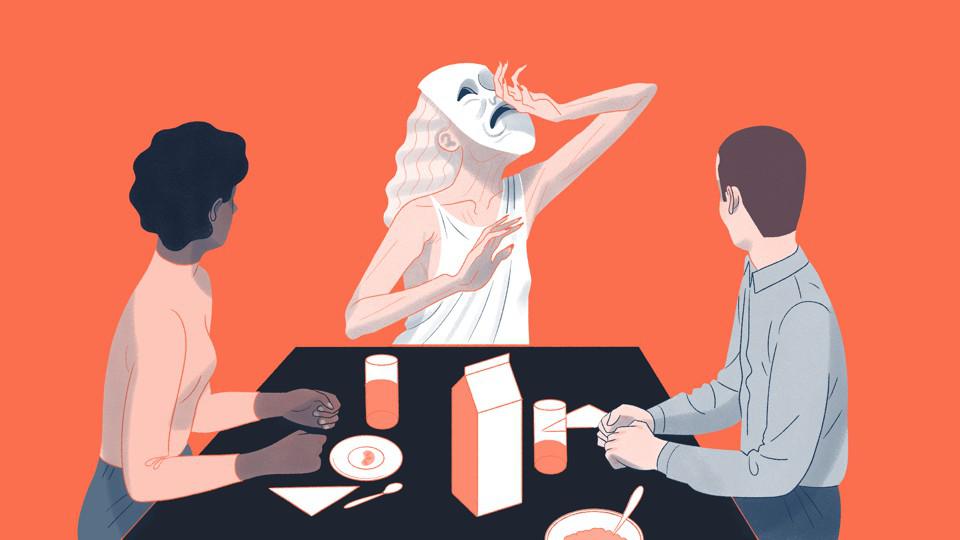
Jealousy is not the product of selfishness alone, or of an infantile or weak character; it is a syndrome consisting of several negative elements, the combination of which gives rise to a problem. These elements form a poisonous mixture that gradually destroys the ability to communicate, love and maintain balance, and, in the end, deprives the union itself of meaning. A jealous person is a mentally ill person who outwardly lives a normal life, however, even the smallest incident can provoke him and force him to deviate from normal behavior. It is then that his monstrous alienation becomes apparent. Anyone who marries a person suffering from this ailment runs the risk of not understanding from the very beginning how serious he is, for jealousy can manifest itself both in a mild form and in its most ugly form. When a relationship is established, the individual feels confident enough to suppress jealousy without wanting to create an unpleasant impression. Later, however, feeling that the other's personality is under control, he removes his mask and reveals his true colors.
Jealousy goes beyond the relationship between partners and leaves an imprint on other aspects of the life of an individual who already lives in constant fear that other rivals will appear, and this in turn inflames his jealousy even more. In addition, the social and professional status of the jealous suffers, as he usually feels unfairly neglected by those who could potentially force him out of the won positions or prevent him from winning more profitable ones. Envy is a constant companion of jealousy, for anyone who is jealous of an imaginary or real rival is at the same time intensely envious of everything that person has achieved or could achieve.
Probably the most important element in the jealousy syndrome is the libido. It plays a much more important role than it might seem at first glance. In the language of the Hermetic teachings, libido symbolizes the vital force, it personifies the birth of life. Sex and generative force are two different things. Electricity has a generative force, but it has no sex, and neither does the atom. The human couple, however, has sex and is capable of generating new life. The libido, or generative force, can be depicted as a circle of energy (360 degrees), in which the sexual organs are given perhaps about 30 degrees. The generative force represents the life-creating energy of the individual, it is a force beyond conscious control, and any attempt to control it would be fruitless. Such energy is set in motion by the impulses of its own driving force, which is introduced as a program that reflects the character of the personality. It is these conditions that determine how natural or perverse the libido of a given individual will be. Although sex represents only a small part of the libido, it is its most visible part. Gender is central to our feelings, and therefore any perception of a stimulus is, in fact, sexual.
The human couple, however, has sex and is capable of generating new life. The libido, or generative force, can be depicted as a circle of energy (360 degrees), in which the sexual organs are given perhaps about 30 degrees. The generative force represents the life-creating energy of the individual, it is a force beyond conscious control, and any attempt to control it would be fruitless. Such energy is set in motion by the impulses of its own driving force, which is introduced as a program that reflects the character of the personality. It is these conditions that determine how natural or perverse the libido of a given individual will be. Although sex represents only a small part of the libido, it is its most visible part. Gender is central to our feelings, and therefore any perception of a stimulus is, in fact, sexual.
The interdependence between libido and sex gives rise to a third element, the "erotic factor", which usually manifests itself as sexual arousal. Under normal conditions, this energy is limited by the sexuality of the individual. It passes through the sexual organs, which also receive natural stimuli through the imagination and the senses. Under certain unnatural or abnormal circumstances, there is a "short circuit" caused by the conflict between sexuality and emotions, so that the sexual energy in the process disappears and pours out in the form of emotions. Gender, emotions and imagination have very different vibrations. If we try to express these differences in terms accepted in radio engineering, then they can be described as waves of different lengths or frequencies. Imagination has the lowest frequency and sexuality the highest. The frequency of emotionality will be somewhere in the middle. Emotions cannot be fueled by sexual energy, which is a kind of high octane super fuel. This is exactly what happens, however, when we are dealing with an attack of jealousy. Sexual superfuel feeds emotions, and this entails disaster - the genitals of a jealous person are aroused, but the arousal manifests itself in a perverted form, because the flow of energy is not normal.
It passes through the sexual organs, which also receive natural stimuli through the imagination and the senses. Under certain unnatural or abnormal circumstances, there is a "short circuit" caused by the conflict between sexuality and emotions, so that the sexual energy in the process disappears and pours out in the form of emotions. Gender, emotions and imagination have very different vibrations. If we try to express these differences in terms accepted in radio engineering, then they can be described as waves of different lengths or frequencies. Imagination has the lowest frequency and sexuality the highest. The frequency of emotionality will be somewhere in the middle. Emotions cannot be fueled by sexual energy, which is a kind of high octane super fuel. This is exactly what happens, however, when we are dealing with an attack of jealousy. Sexual superfuel feeds emotions, and this entails disaster - the genitals of a jealous person are aroused, but the arousal manifests itself in a perverted form, because the flow of energy is not normal. A person experiences sexual arousal, but only due to the reaction of the heart, which serves as a brain for the emotional apparatus.
A person experiences sexual arousal, but only due to the reaction of the heart, which serves as a brain for the emotional apparatus.
This is a form of unconscious depravity, like mental chewing on the same topic, when negative and positive ideas alternate in an endless sequence. Thought constantly returns to the same subject, and this process gives rise to some "pleasant" feelings. And since all feelings have a sexual stimulus, it is not difficult to see the connection between such mental chewing and sex, or between jealousy and sex. In essence, a jealous person constantly “masturbates” mentally, using his imagination and emotions to get perverse satisfaction. From a psychologist's point of view, the jealous man is usually a masochist, as he often imagines his partner and rival in certain erotic situations. These imaginary situations cause him pain and excitement at the same time. He experiences pain from being deceived and excitement from imaginary erotic scenes.
It can be said that jealousy, in addition to being a serious mental disorder, is also a form of sexual perversion. A jealous person is constantly looking for certain situations that will allow him to enjoy such experiences in his own way. It is curious that if such a person happens to marry several times, then he is invariably "unlucky" and he always finds partners who "cheat" him, unless the deviations in the partner's character turn out to be more serious and he, guided by his masochistic inclinations, decides obey him completely. In this case, he is inclined to admit that he has found the “ideal” partner or, to be objective, the “ideal tool”.
A jealous person is constantly looking for certain situations that will allow him to enjoy such experiences in his own way. It is curious that if such a person happens to marry several times, then he is invariably "unlucky" and he always finds partners who "cheat" him, unless the deviations in the partner's character turn out to be more serious and he, guided by his masochistic inclinations, decides obey him completely. In this case, he is inclined to admit that he has found the “ideal” partner or, to be objective, the “ideal tool”.
There is also a special form of jealousy which should be mentioned briefly. This is projected jealousy, where the individual attributes their inability to remain true to the partner's character. Subconsciously, he judges the partner as a "traitor", but in essence he only attributes his own qualities to him. There is another interesting case - it happens that a man, having learned that his wife is cheating on him, begins to show interest in another man. This man is not a rival. Instead, his wife becomes a rival, who stands between him and his chosen one. The first man experiences a peculiar homosexual attraction to the other. The jealousy that seizes him when he imagines love scenes makes him subconsciously accept the role of a woman and put himself in her place.
This man is not a rival. Instead, his wife becomes a rival, who stands between him and his chosen one. The first man experiences a peculiar homosexual attraction to the other. The jealousy that seizes him when he imagines love scenes makes him subconsciously accept the role of a woman and put himself in her place.
In this sense, jealousy is one of the most widespread and most harmful forms of perverted, satanic love, which prevents people from knowing true love. This book will deal with all the characteristic features of satanic love. These features overlap, they are just different forms of manifestation of satanic love. The satanic element, being a general concept, manifests itself in various and contradictory forms of behavior. Taken together, they represent all kinds of unnatural love. By studying and examining these traits, people will be able to understand what satanic love is.
HIDDEN THING: JEALY
HIDDEN THING: JEYEAL As a result of its regressive development, passion for things turns into pure jealousy, when the owner of the thing is most deeply satisfied with the value that this thing could have for others and which he deprives them of. Such a complex of jealousy,
Such a complex of jealousy,
CONTROLLED NARCISSM
MANAGED NARCISSISM All of the above makes it necessary to re-examine the question of narcissism in terms of its control by society. The phenomenon we have been talking about so far is mentioned by Freud in the article "On Narcissism":[134]
90. Jealousy
90. Jealousy Jealousy is no doubt a special form of envy—envy of love. Old people often envy the young; when this is the case, they are capable of
Jealousy
Jealousy The sun shone brightly on the white wall opposite, and its blinding light made faces indistinct. A little girl, without motherly guidance, came up and sat down beside him. She was surprised at everything that was happening with her eyes wide open. She recently bathed and dressed, and in her hair
Jealousy
Jealousy JEALOUSY. "A feeling that is born in love and stems from the fear that the loved one will prefer someone else." (Litre)1. The jealous man in the novel is not Werther, but Herr Schmidt, Frederica's fiancé, a man with a bad temper. Jealousy comes to Werther through images (see,
"A feeling that is born in love and stems from the fear that the loved one will prefer someone else." (Litre)1. The jealous man in the novel is not Werther, but Herr Schmidt, Frederica's fiancé, a man with a bad temper. Jealousy comes to Werther through images (see,
Individual and social narcissism [5]
Individual and social narcissism[5] One of Freud's most fruitful and insightful discoveries is the concept of narcissism. Freud himself considered it one of the most important results of his research and used it to explain such various phenomena as
IV. INDIVIDUAL AND SOCIAL NARCISSISM
IV. INDIVIDUAL AND PUBLIC NARCISSISM One of Freud's most fruitful and insightful discoveries is the concept of narcissism. Freud himself considered it one of the most important results of his research and used it to explain such various phenomena as
Narcissism
narcissism Through the concept of narcissism, Freud made contributions of great importance to the understanding of man. The main proposition expressed by Freud was that a person can be oriented in two contradictory ways: his main interest, love, care -
The main proposition expressed by Freud was that a person can be oriented in two contradictory ways: his main interest, love, care -
jealousy
JEALOUSY The bright rays of the sun fell on the white wall of the room; from their brilliance the faces seemed dark. Suddenly a little girl came into the room and sat next to us; her eyes were wide open, and she looked with surprise at everything that was around. girl just
Jealousy
Jealousy The sun shone brightly on the white wall opposite, and its blinding light made faces indistinct. A little girl, without motherly guidance, came up and sat down beside him. She was surprised at everything that was happening with her eyes wide open. She recently bathed and dressed, and in her hair
narcissism
narcissism German: Narzismus. – French: narcissisme. – English: narcissism. – Spanish: narcisis-mo. – Italian: narcisismo. – Portuguese: narcisismo. • According to the myth of Narcissus, love of one's own image. • 1) The term "narcissism" (a) first appears in Freud in 1910. To denote homosexual choice
– French: narcissisme. – English: narcissism. – Spanish: narcisis-mo. – Italian: narcisismo. – Portuguese: narcisismo. • According to the myth of Narcissus, love of one's own image. • 1) The term "narcissism" (a) first appears in Freud in 1910. To denote homosexual choice
IV. Individual and social narcissism
IV. Individual and social narcissism One of Freud's most fruitful and insightful discoveries is the concept of narcissism. Freud himself considered it one of the most important results of his research and used it to explain such various phenomena as
Narcissism
narcissism Through the concept of narcissism, Freud made contributions of great importance to the understanding of man. The main proposition expressed by Freud was that a person can be oriented in two contradictory ways: his main interest, love, care -
Narcissism (Narcisisme)
Narcissism Not self-love, but self-love.






